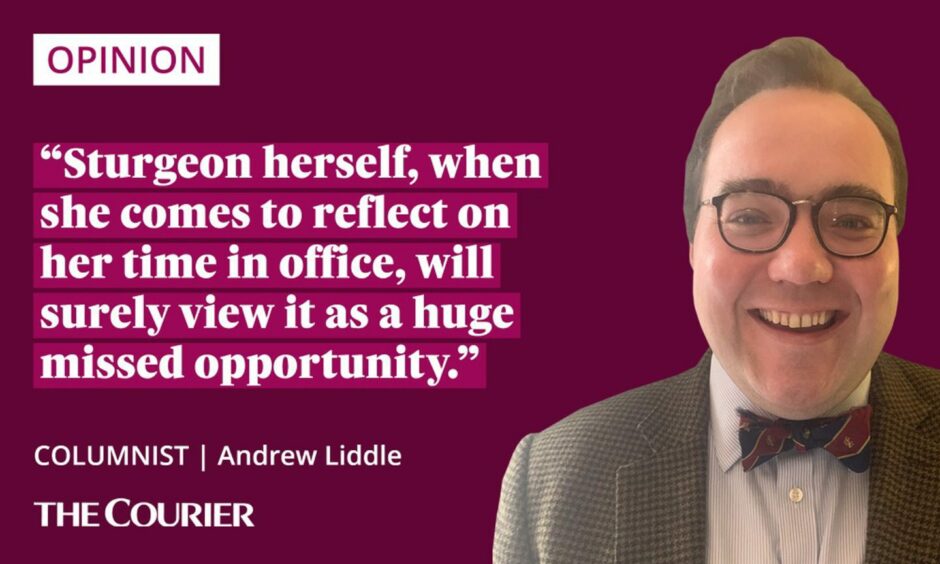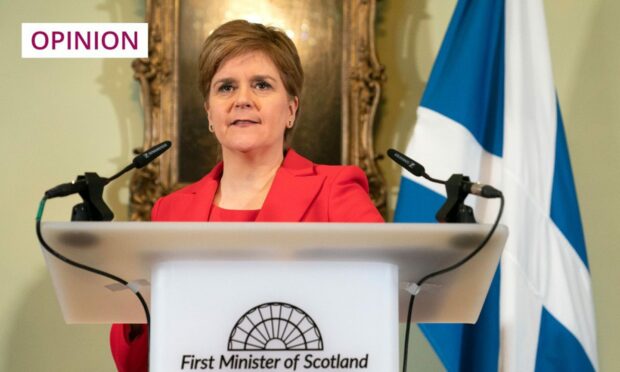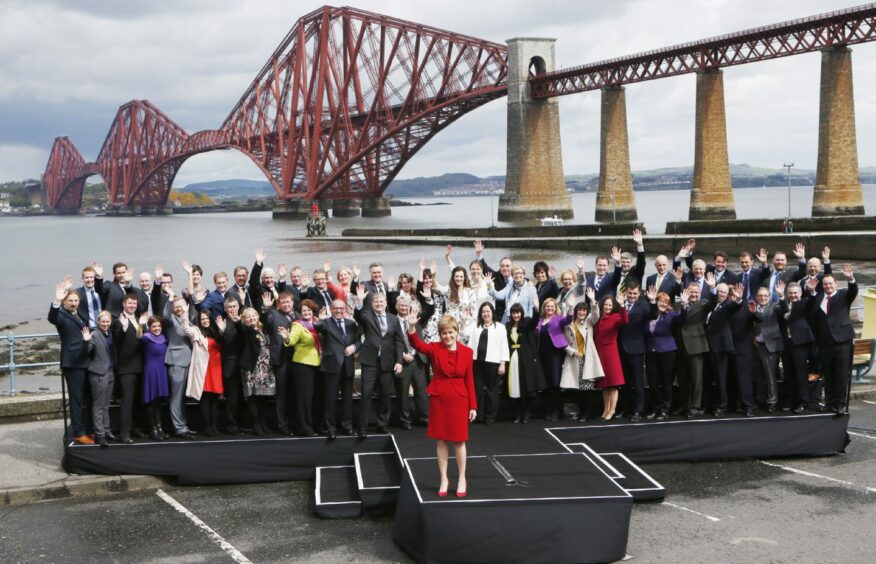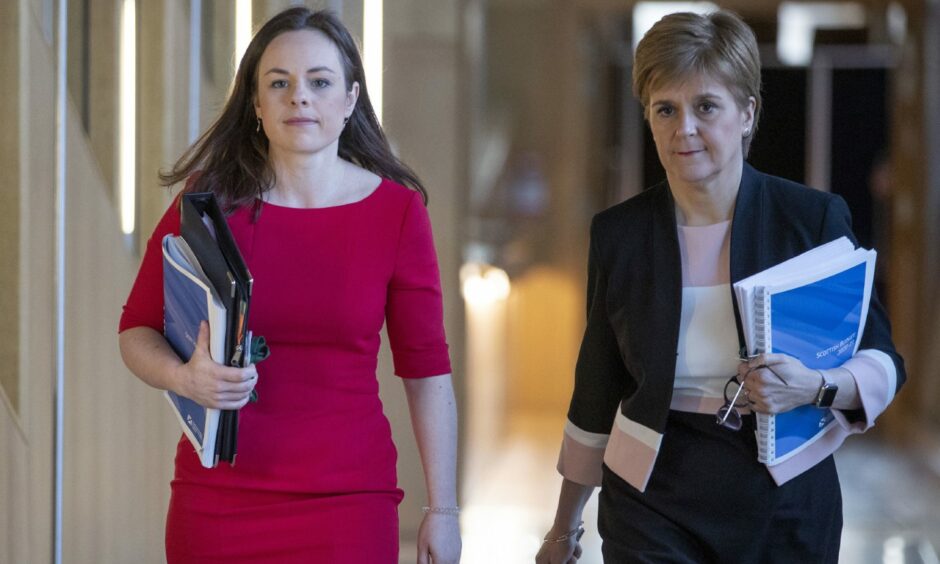Nicola Sturgeon will undoubtedly be remembered as one of the most able political campaigners of the devolution era. But she will also be remembered as one of its worst political leaders.
Her electoral successes are almost without parallel, not just in 21st century British politics, but in western European politics more widely.
In 2015, she upended Scottish and British politics by leading the SNP to a landslide victory, winning 56 of 59 seats.
The SNP became in the process the only party in political history, other than the Conservatives at the 1955 General Election, to win 50% of the popular vote in Scotland.
Of course, the political cycle post-referendum was in her favour. And one could argue that the SNP was bound to do well at that election regardless of the leader.
But the manner and scale of the victory was down to Sturgeon.

Similarly in 2016, she did well to keep the SNP as by far the most dominant party at Holyrood, despite significant headwinds.
The snap 2017 general election result was something of a setback. But Sturgeon still maintained a stranglehold on Scottish politics that she only tightened in 2019.
Victory at Holyrood in 2021 – albeit again failing to get a majority – was nevertheless an achievement, given the SNP had already been in office for 13 years.
Critics can argue about Sturgeon’s role in these later victories. And it is true that there was little effective opposition.
Yet she undoubtedly built a rapport with voters, including middle-class No voters, who saw her – however inaccurately – as a competent administrator.
Nicola Sturgeon communication skills trumped actual achievements
Her powers of communication were equally unmatched.
Her raw charisma, cold and roughly hewn, nevertheless captivated many in Scotland and beyond.
For better or worse, Sturgeon’s abilities made her national figure across the UK.
This manifested itself primarily in terms of politics, with Sturgeon becoming an anti-austerity champion of the liberal left in England, but also culture and feminism.
As a result, the office of First Minister of Scotland was elevated in the British national conscious, with Sturgeon overawing counterparts in other devolved administrations despite their theoretical equality.
These qualities were best expressed during Covid-19, when Sturgeon’s presence reassured the Scottish public and encouraged them to believe, even if it was not really true, that they were enduring a better pandemic than elsewhere in the UK.
And yet, despite these noted qualities, Sturgeon has almost nothing tangible to show for her decade or more as a political leader.
Scratch the surface and what were Nicola Sturgeon’s achievements?
The two major devolved departments – health and education – are certainly no better off than when Sturgeon took office and are arguably worse, despite the latter in particular allegedly being her defining mission.
Other flagship policies, such as the named person scheme and gender reform, have hit the buffers amid serious private and public opposition.
Brexit, which Sturgeon determined to reverse, went ahead.
A second independence referendum – despite Sturgeon’s protestations – is no closer now than it was in 2014, while the SNP’s case for independence is now, quite remarkably, even less compelling than it was back then as well.
Even looking at party rather than country, it hard to find successes.
Controversies and coldness overshadow Sturgeon legacy
The SNP itself could well have broken up amid her dramatic falling out with her predecessor.
That it survived intact has more to do with Alex Salmond’s unpopularity among voters than Sturgeon’s leadership.
Meanwhile, the SNP has been dogged by accusations of mismanagement and dubious practices, with the £100,000 loan to the party by Sturgeon’s husband, the SNP Chief Executive Peter Murrell, the latest in a litany of murky deals.
SNP parliamentarians have also found Sturgeon cold and exclusive, operating only within a small cohort of advisors and unwilling to engage in the glad-handing and ego-managing that is required of a party leader.
Perhaps most egregiously, Sturgeon has failed to line up an heir apparent, or indeed any potential successor of note.
‘A huge missed opportunity’
Some names have occasionally been touted. Backbenchers have sometimes been promoted. But most have either failed to impress or been forced out of office by scandal.
This leaves the coming leadership contest wide open and the SNP’s talent pool looking much more like a murky puddle.
Sturgeon was thus a leader who excelled at gaining power, but failed at exercising it. And it is this paradox that will define her legacy.
On the positive side, she will be remembered as someone with enormous – in some cases unparalleled – talents, who delivered a series of unexpected and unprecedented election victories, solidifying the SNP in power.
But she will also be remembered as someone who squandered that power, achieving nothing tangible and arguably setting back the causes she most deeply cares about.
That is hardly a compelling legacy after eight years as First Minister and Sturgeon herself, when she comes to reflect on her time in office, will surely view it as a huge missed opportunity.
















Conversation